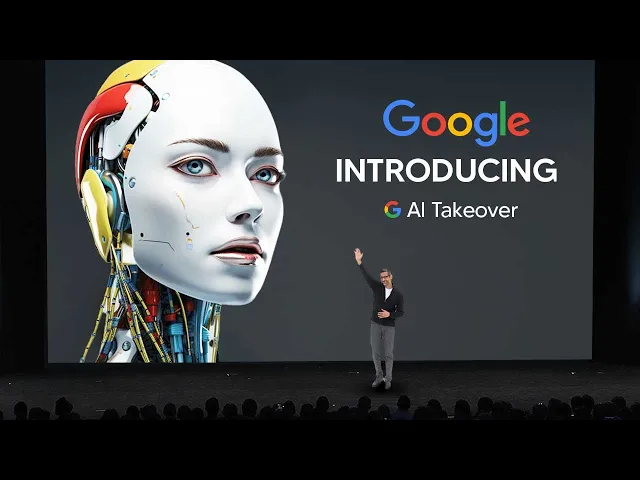Did Google just win the AI race?

Google's AI Gemini makes a stunning debut
Google has just thrown down the gauntlet in the artificial intelligence race with its newly unveiled multimodal AI model, Gemini. After months of speculation about Google's response to competitors like OpenAI's GPT-4, the tech giant has finally revealed what may be the most capable AI system yet developed. Gemini represents not just an iterative improvement over existing models, but potentially a fundamental leap forward in how machines process and understand our world.
Key insights from Google's Gemini announcement:
-
Gemini is designed from the ground up as a multimodal AI system—capable of processing text, images, audio, and video simultaneously—unlike many competitors that added these capabilities after initial development.
-
The model comes in three sizes (Ultra, Pro, and Nano), with Ultra outperforming GPT-4 on 30 of 32 academic benchmarks and showing remarkable reasoning capabilities across multiple knowledge domains.
-
Google is rapidly deploying Gemini across its ecosystem, with the Pro version already powering Bard and the Nano version specifically engineered to run efficiently on mobile devices like the Pixel 8.
Gemini represents what appears to be a significant shift in Google's AI strategy. While the company invented the transformer architecture that powers most modern AI systems, it has seemingly played catch-up to OpenAI in recent years. With Gemini's release, Google appears to have regained technological leadership by building a truly native multimodal model rather than bolting on capabilities to existing systems.
What makes this particularly significant is how Gemini changes the competitive landscape. Unlike previous generations of AI where different systems excelled at different tasks, Gemini demonstrates superior performance across nearly all benchmark categories. From complex reasoning to creative writing to scientific problem-solving, Google's new model shows sophisticated abilities to process information across modalities in ways that more closely mirror human cognition.
The implications for business users are profound. Consider how content creation workflows might evolve with an AI that can analyze an entire marketing presentation—understanding the images, spoken narration, and text simultaneously—before offering suggestions that consider all these elements in context. This represents a qualitative improvement over current systems that often process different media types in isolation.
While Google's demo videos likely show Gemini's capabilities in the best possible light
Recent Videos
How To Earn MONEY With Images (No Bullsh*t)
Smart earnings from your image collection In today's digital economy, passive income streams have become increasingly accessible to creators with various skill sets. A recent YouTube video cuts through the hype to explore legitimate ways photographers, designers, and even casual smartphone users can monetize their image collections. The strategies outlined don't rely on unrealistic promises or complicated schemes—instead, they focus on established marketplaces with proven revenue potential for image creators. Key Points Stock photography platforms like Shutterstock, Adobe Stock, and Getty Images remain viable income sources when you understand their specific requirements and optimize your submissions accordingly. Specialized marketplaces focusing...
Oct 3, 2025New SHAPE SHIFTING AI Robot Is Freaking People Out
Liquid robots will change everything In the quiet labs of Carnegie Mellon University, scientists have created something that feels plucked from science fiction—a magnetic slime robot that can transform between liquid and solid states, slipping through tight spaces before reassembling on the other side. This technology, showcased in a recent YouTube video, represents a significant leap beyond traditional robotics into a realm where machines mimic not just animal movements, but their fundamental physical properties. While the internet might be buzzing with dystopian concerns about "shape-shifting terminators," the reality offers far more promising applications that could revolutionize medicine, rescue operations, and...
Oct 3, 2025How To Do Homeless AI Tiktok Trend (Tiktok Homeless AI Tutorial)
AI homeless trend raises ethical concerns In an era where social media trends evolve faster than we can comprehend them, TikTok's "homeless AI" trend has sparked both creative engagement and serious ethical questions. The trend, which involves using AI to transform ordinary photos into images depicting homelessness, has rapidly gained traction across the platform, with creators eagerly jumping on board to showcase their digital transformations. While the technical process is relatively straightforward, the implications of digitally "becoming homeless" for entertainment deserve careful consideration. The video tutorial provides a step-by-step guide on creating these AI-generated images, explaining how users can transform...
